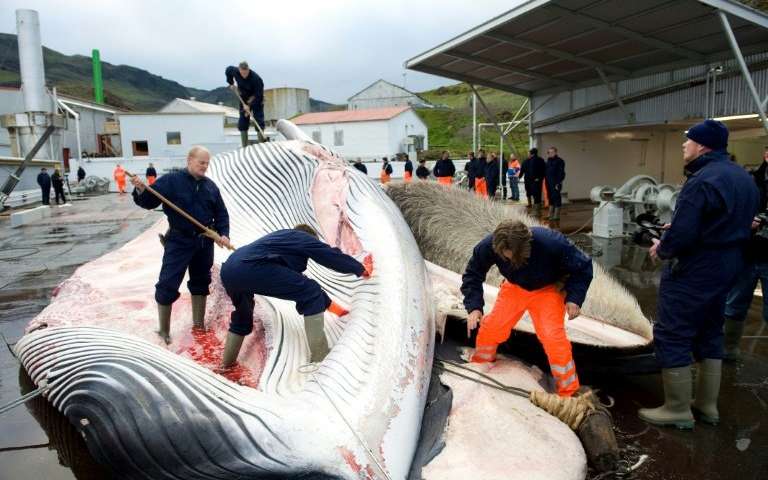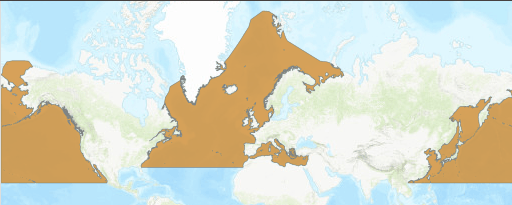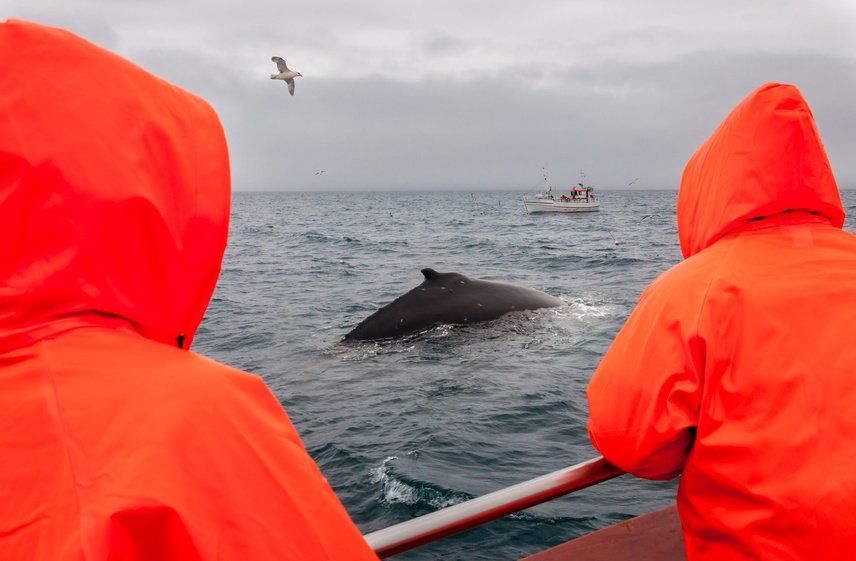Iceland to Kill over 2,000 Whales in the Next Five Years!
Iceland is to proceed against the International Whaling Commission (IWC) ban on commercially hunting whales over the next five years. According to the Icelandic Minister for Fisheries and Agriculture, targeted species will include minke and fin whales, claiming the hunts will only target "abundant whale stocks" and will be "science-based, sustainable and in accordance with international law".
Icelandic whaling company Hvalur, having killed a 35-tonne Fin whale in 2009.
The North Atlantic fin whale ( Balaenoptera physalus
) has been subject to heavy exploitation in the past and, despite partial recovery in recent years, are still considered vulnerable (Cooke, 2018) Read our blog: " Fin whales now less protected as moved to "Vulnerable"on the IUCN Red List for Threatened Species".
North Atlantic fin whale distribution. Source: IUCN.
The Icelandic Government have allocated an annual quota to commercially hunt and kill 209 fin whales and 217 minke whales ( Balaenoptera acutorostrata ) each year, for the next 5 years! This is also an increase in comparison to other years quotas, (e.g. in 2017 the quota was 150 fin whales). Last years decision not to hunt any whales in Iceland due to a major reduction in the demand for whale meat amongst tourists and natives brought relief to many conservationists around the world, but now fears have resurfaced that Iceland's whale hunts may go ahead again in 2020, in an attempt to fill their quotas. Re-commencing commercial hunting of whales could have severe negative consequences for the Tourism industry in Iceland. According to a report by World Travel and Tourism Council, tourism accounted for a total of 8.5% of Iceland's GDP in 2018.
Whale-watching in Iceland.
Iceland is a world famous destination for whale-watching fanatics. There are several companies located in Reykjavik that operate tours, and species that can be usually viewed from the ships include minke, fin whale, killer whale ( Orcinus orca ), sperm whales ( Physeter macrocephalus ), dolphins and sometimes if you are lucky, you can see the largest animal that ever lived on Earth - the blue whale ( Balaenoptera musculus ) .
Whale-watching is also an excellent opportunity to watch a large number of seabirds that are concentrated near the whale feeding area. The whale-watching industry in Iceland has grown a lot in the last 10 years and is expected to continue on the same trend. In 1991, only 100 people went whale-watching in Iceland, however in 2003 65,000 tourists were thought to have come to Iceland just to see whales. In 2017, a report from the University of Iceland revealed that whale watching contributed $13.4 million to the economy and directly supported 13,500 jobs (7.2% of total employment). In comparison the whale hunting company Hval hf. contributed $8.4 million to the economy, likely due to the limited market for whale meat (Japan, Norway and the Republic of Palau).
The two main centres of whale watching in Iceland are the capital city Reykjavik and Húsavík in the north of the country. Húsavík was the first town in Iceland where the whale watching began and still it is considered a world known center in this field.
In addition, in Ólafsvík in the west and in the northern town of Dalvík there are whale-watching cruises too. Many options make it easy to integrate such a cruise during your visit in Iceland. Remember, even if you went on a cruise on especially hot Icelandic day, better take your coat and head cover.
Iceland's whaling season opens on June 10.
References:
Cooke, J.G.
2018.
Balaenoptera physalus
.
The IUCN Red List of Threatened Species
2018: e.T2478A50349982
SHARE THIS ARTICLE
















